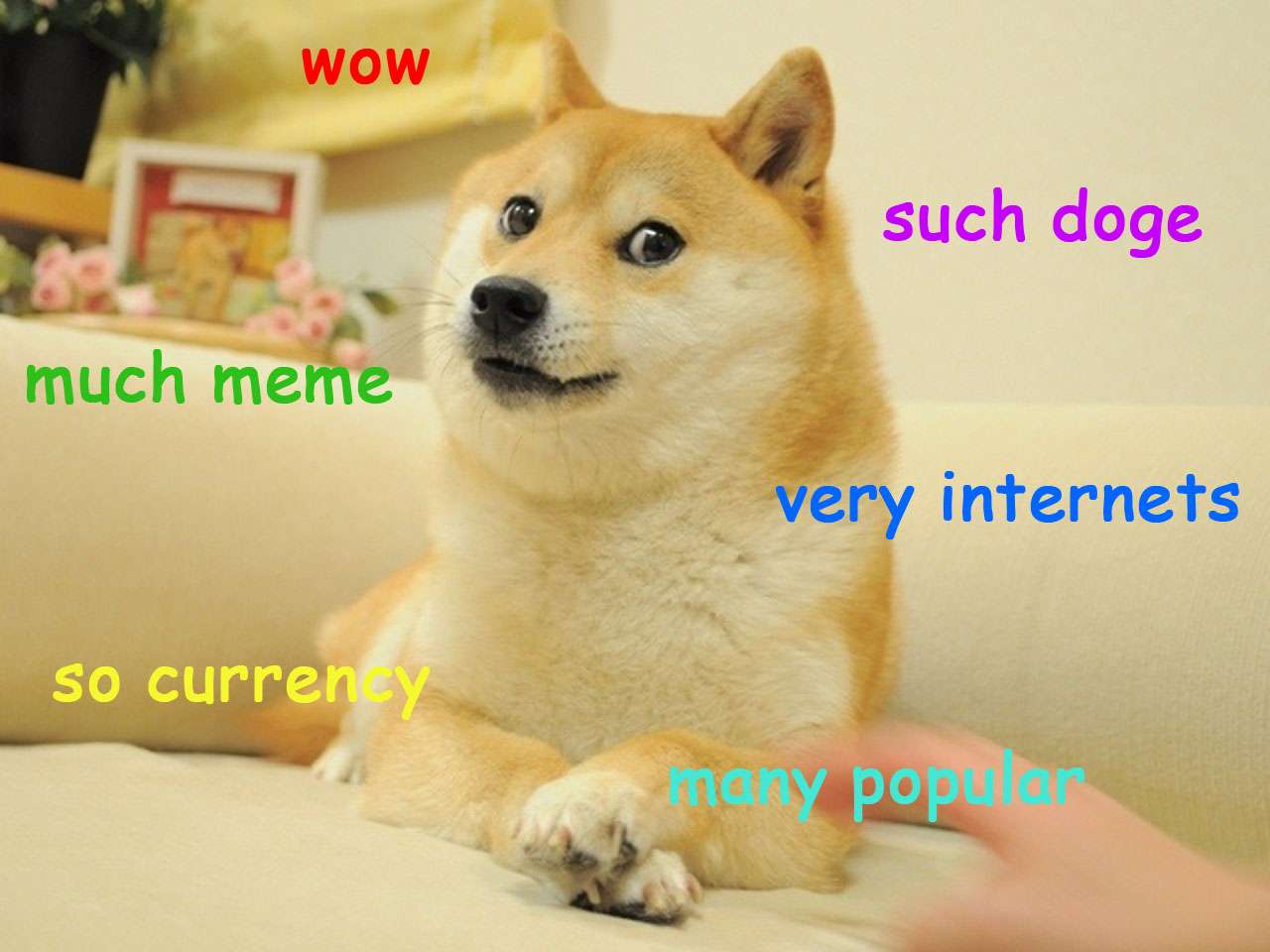I’ll admit it, I underestimated the Internet meme. Like most young adults of my generation, I’ve spent hours upon hours cheerfully observing the various online phenomena du jour. From Lolcats to the Harlem Shake and everything in between, I’ve watched meme culture—enabled by the rapid technological advancements of the last decade—blossom into a procrastination-inducing juggernaut that not even the creator of the Hampster Dance could have imagined in his wildest, pixelated dreams. But until very recently, I wasn’t taking internet memes as seriously as I should have been. Let me explain.
Last week, I came across an article, “Dogecoin-Funded Efforts to Send the Jamaican Bobsled Team to Sochi.” As the article went on to explain, Dogecoin is an Internet cryptocurrency similar to Bitcoin and inspired by the viral photo meme of a Shiba Inu dog—or “doge” as it’s intentionally misspelled—surrounded by short phrases in Comic Sans font meant to represent internal monologue. Its founder—and Cool Runnings-lover—Liam Butler launched Dogesled, a crowdsourcing effort that put out Doge-bobsled hybrid images on the Internet in hopes of raising enough funds to get Jamaica’s two-man bobsled team to the Winter Olympic Games. As of Monday, Dogesled had reportedly raised over $34,000 of real money largely thanks to Dogecoin.
My mind was blown. You’re telling me that a silly dog picture trend led to the creation of a virtual currency—one that sounds less legitimate than a Neopoint—and is somehow on the verge of making a significant financial contribution to a cause? It didn’t make sense; but the more I thought about it, it did.
We now live in a time where the Internet governs much of our activity on a day-to-day basis. Whether we’re making transactions, receiving our news, or absorbing mindless entertainment, it had given us a forum for expression of media and other visual content that real-life interactions don’t always offer.
The meme is a model first introduced by evolutionary biologist Richard Dawkins in The Selfish Gene (1976). Derived from the Greek term mimeme, it’s a term for describing how social behaviour and ideas spread through imitation. Internet memes operate under the same principle: they refer to anything that transmits itself through the Internet and offers some kind of imitable concept.
A common misconception is that memes only refer to photos; classics like “Bad-Luck Brian,” “Scumbag Steve,” “Willy Wonka,” and even the “Lower-Field McGill Meme” come to mind at the mention of the word. However, memes also encompass viral videos, GIFs, hashtags, and intentionally misspelled words like “pwn” and “teh.” Sometimes, a meme like “Tebowing, “which refers to Tim Tebow’s iconic stance where he kneels on one knee and rests his head on a single clenched fist, can function as both an Internet meme and a real-life action.
As the borders between cyberspace and reality become increasingly blurred, stories like the success of Dogesled should become less and less surprising. Even more subtle behaviour, such as the adoption of instant messaging phrases like “brb” and “ttyl” into conversation, show that people are adopting an internet consciousness. So this evening, when the President of the United States gives his State of the Union address, don’t be surprised if a “Barack Dogebama” meme goes viral afterwards, captioned with all of his key points scattered across the image in misspelled Comic Sans font.








